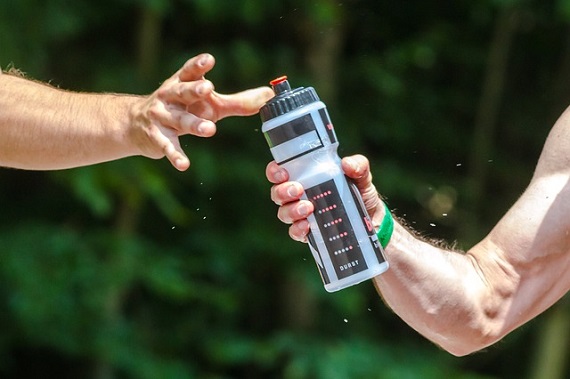


Australia's most comprehensive organic and natural directory
Blog / Beverages
16 Feb 2018Your water bottle is dirtier that you think

People are becoming more environmentally conscious and purchasing reusable water bottles, cups and mugs. This is a wonderful trend which saves money in the long run and reduces the amount of waste that ends up in landfills. However, if you aren’t properly washing your reusable bottles regularly then you need to keep reading.
You might not think that your water bottle needs much more than a weekly wash, after all it only carries water around and isn’t handled by anyone else but you. However, reusable water bottles that aren’t properly cleaned can become a breeding ground for bacteria and will result in you consuming a whole lot of germs along with your water.
Bacteria levels are measured by a ‘colony forming unit’ of CFU, and 5 CFUs is considered an acceptable and safe number for tested items. A study on reusable water bottles that were not regularly washed found that 1 in 3 had more than 100,000 CFU per swab. They also found that a bottle that had been rinsed daily but not properly washed still had a reading of 6000 CFU. In case you have trouble picturing what this means, the average dog bowl only contains about 700 CFU.
It makes sense when you think about the fact that our hands touch various surfaces throughout the day that result in us picking up microbes which then get transferred to the bottle. Our bottles get carted around in dirty bags and sit on many surfaces throughout the day from the car to the office and even the gym. Our mouth also houses millions of bacteria which make it into the bottle when we drink from it.
A person with a robust immune system is perfectly capable of defending against a certain amount of bacteria left on a water bottle, but a large amount of bacteria is a completely unnecessary stress to put on the body. Children, people with compromised immunity and older people are at higher risk when exposed to even small amounts of bacteria.
Putting your reusable bottle in the dishwasher may not be the smartest cleaning option because many of these bottles have narrow openings and necks which makes it difficult for the water and cleaning solution to clean it well.
Cleaning solutions that are safe for reusable plastic, glass or stainless steel bottles include mild dish soap, natural antibacterial soap, vinegar and baking soda. Simply squirt some natural dishwashing liquid or natural antibacterial soap into the bottle, fill it with some water, shake it and then use a small brush to scrub it before rinsing it. You can make your own natural cleaning solution to clean your bottles by diluting 1-2 tablespoons of white vinegar with one cup of pure water. Let the solution sit in the bottle for about 15 minutes and then scrub the bottle using a brush of your choice. Cleaning utensils like pipe cleaners, bottle brushes and toothbrushes are excellent options as they get into all the crevasses and corners.
Sources
http://www.shopnaturally.com.au/healthy-households/keep-water-bottle-safe-dangerous-levels-bacteria/








